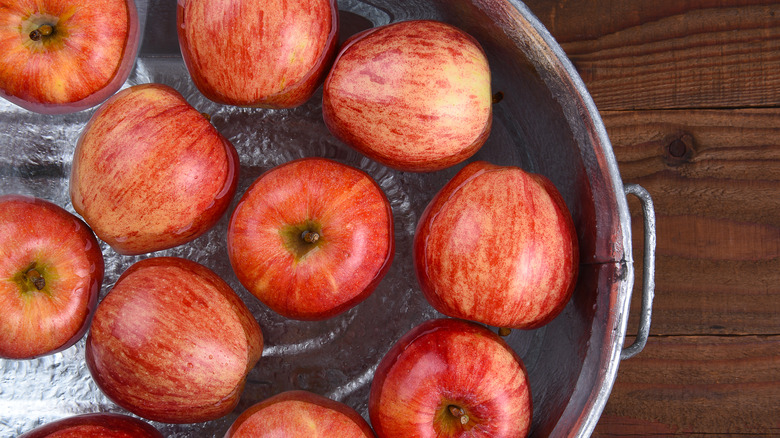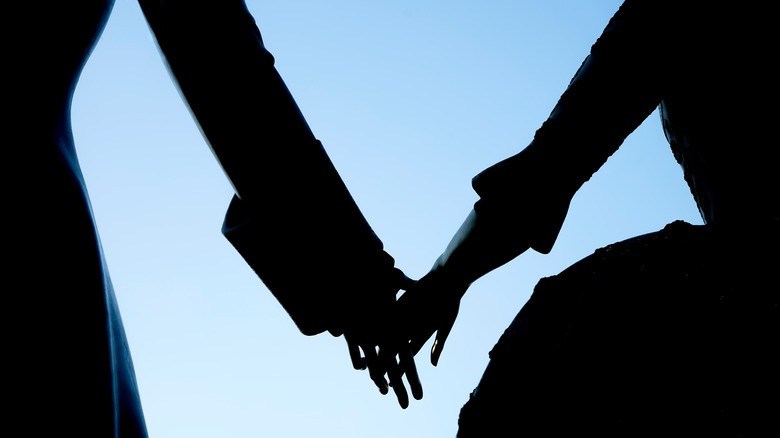The Romantic Origin Story Behind Bobbing For Apples
Apples are a popular fruit that individuals in the U.S. enjoy by the pound, per the USDA, and they often appear symbolically in many traditions, historical events, and works of art. Per National Geographic, the Trojan War began with an apple; celebrated poets Emily Dickinson, Dylan Thomas, Robert Frost, and Christina Rossetti all have poems about apples; apples were believed to be the source of the Norse gods' immortality; and too many famous painters to count have featured apples in their paintings.
Apples have had a long time to become such a prominent feature of so many cultures and histories. According to North Carolina Historic Sites, about 750,000 years ago, apples originally came from an area of central Asia east of the Caspian Sea, which is Kazakhstan today. People during that time harvested and enjoyed sour crab apples, and apple seeds spread to Europe by 200 B.C. At this time, there were several types of apples growing in England, and by the 1600s, explorers from Spain carried apple seeds to South and Central America.
Interestingly enough, at one point during the course of this worldwide journey, apples were used in Britain for a special ritual that's turned into a game some of us play today every autumn: bobbing for apples.
Bobbing for apples was used as a courting ritual
According to History, the tradition of bobbing for apples has been around for several hundred years and started in Britain as part of a courting ceremony that would reveal the romantic fate of those who participated. In one version of the ritual, each prospective spouse was assigned an apple, and the person bobbing would try to lay claim to their mate by biting the apple appointed to their lover. If the bobber successfully bit the apple on the first attempt, it was said that the pairing was fate and they were made for each other. If the bobber completed the task on the second try, the potential mate would pursue the object of their desire, but destiny decreed the relationship wouldn't last long. Finally, if the bobber required three attempts, the pairing was ill-fated. Variations on the game were less intentional, suggests NPR: If you went into the bob without a pairing in mind, you might come out with an answer.
Another version of apple bobbing, according to History, had participants attempt to bite an apple before the other contestants, meaning they would marry first. Furthermore, it was believed that if one placed the bitten apple beneath their pillow, their future beloved would appear to them in a dream. Much like other traditions, the courting ceremony of apple bobbing grew less observed by the 1800s. However, the game was later revitalized by Celtic Americans wishing to pay homage to their immigrant ancestors, and apple bobbing is now a popular activity during many autumn celebrations.

